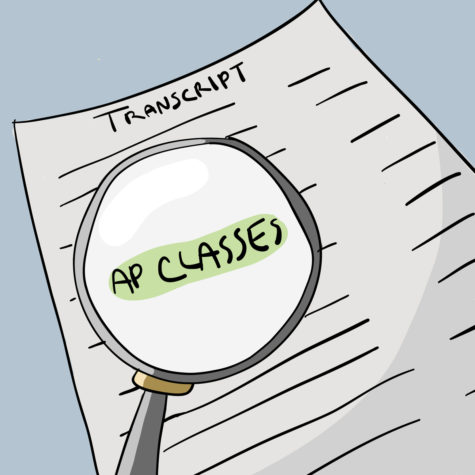PPS board members aren’t paid, limiting who can serve
The seven members of the Portland Public Schools Board of Education have tremendous power in our district; they set and direct policies that affect 81 schools and have tremendous sway over one of PPS’s most powerful people, the superintendent. However, not one of those seven members is paid a cent. That’s a problem.
The lack of compensation for board members is neither recent nor confined to Portland. In Oregon Revised Statutes, the set of laws for the whole state, law 332.018 says that “No director [board member] shall receive any compensation for services as director other than reimbursement for reasonable and necessary expenses actually incurred on school business.” By law, no school district in Oregon can pay its board members, and it has been that way since at least 1953.
When describing the board, PPS states: “Board members are community volunteers and do not receive compensation for their work.”
This designation of “community volunteer” does not seem to fit when you consider that board members must run for office. In fact, they appear to be more like regular politicians than volunteers: they must try to fund a campaign and gain votes. “Community volunteer” would seem to imply that they can simply ask for the position and receive it, like volunteering for a soup kitchen.
Michele DePass, chair of the PPS school board, says that running for office is not a simple procedure, but rather an involved process.
“We’re not just elected from our neighborhood,” DePass said. “This is a city-wide, non-partisan election.”
Although each board member represents a zone of Portland, they are elected by the entire city. This makes school board campaigns much more complicated than they might otherwise be, as prospective members need to reach thousands of voters.
Elizabeth Thiel, president of the Portland Association of Teachers, says that a large voter base requires a large pocketbook.
“Right now, a school board member has to live in their zone, but they run across the whole city,” Thiel said. “That makes it an extremely expensive race. […] One of the reasons it’s so expensive is because they’re making campaign literature for the entire city.”
The total expenditures for school board candidates can be tallied from the Oregon Secretary of State website. These numbers include contributions, expenses, and other miscellaneous transactions. In 2021, Gary Hollands spent nearly $25,000; Herman Greene spent more than $36,000; Julia Brim-Edwards, the incumbent, spent over $54,000. Keep in mind, all three of these candidates won in landslides; Brim-Edwards and Hollands won with over 80 percent of the vote, and Greene with nearly 75 percent of it.
Once you get elected to the board, you then need to sink a lot of time into the position.
Thiel calls being a board member “essentially a full-time job with no pay.”
DePass says as the chair she typically works between 16 and 24 hours a week for the board, and that is on top of a full-time job to pay the bills.
She added that she has needed to reduce her work hours as well as pay for help with cleaning, gardening, and cooking to be the chair. Not only has she reduced her income, but she has also added more expenses. All of this for an unpaid position.
If you are a board member with children, you are much more likely to incur additional expenses. Every two weeks, you might need to hire a babysitter for your children to be able to attend board meetings.
DePass said, “You don’t even get paid enough to buy [your children] a pizza and get a babysitter. […] Someone that’s working-class [who doesn’t] get paid a whole lot would struggle unless they had extra resources to draw upon.”
Add all these factors up–the expensive campaigns, the huge voter base, the large time commitment, the possible reduction of hours and an increase of expenses–and they appear to create a huge accessibility issue. These factors would likely determine who can and can’t be on the board.
“We’re seeing seven people that have the flexibility to be on the Board,” DePass said.
Thiel agrees. “If getting onto the school board means you have to be independently wealthy and not need to have an income, that really cuts out the majority of people’s perspectives in the city,” she said.
Mayra Gomez, chair of the Gresham-Barlow Board of Education, put in concrete terms how a lack of pay creates accessibility problems.
“When you’re [someone] who has to support the family, why would you give up 10 hours a week for free when you could be earning money for your family. […] Only certain people can afford to volunteer, can give up that much time,” Gomez said.
However, there could be very good reasons why board members are unpaid. PPS seems to argue that board members are volunteers, but perhaps there is another reason. Perhaps it is to keep candidates from running just for the money. The lack of payment provides a gatekeeping function, making sure those who are on the board truly deserve to be there.
Gomez does not believe this is enough of a reason to not pay members.
“If there was a financial incentive, we still might get people who have a personal agenda,” she said. “But we would also open it up to people who really want to be engaged and want to participate, but may not be able to afford to financially.”
DePass provided one final reason why school board members should be paid that has nothing to do with accessibility or representation but might be just as important a consideration.
“I don’t necessarily need the money,” she said. “But it would be a recognition of the stress, the health impacts, the nasty emails, the hate mail.”
Although DePass was speaking from personal experience, her point is powerful. School board members perform an incredibly important function in our community. We should recognize that effort by compensating them.
Paying board members may not be the only solution to these problems.
Thiel said, “I don’t know that paying is the only route to make it more accessible.”
Courtney Westling, director of government relations for the superintendent, expressed this same idea in a statement over email.
“While I believe compensating school board members could make school board service more accessible to people from diverse backgrounds and better reflect our community as a whole, it’s not the only remedy,” she says. “You also have to address other barriers like fundraising and candidate recruitment.”
As Nelson Mandela once said, “Education is the most powerful weapon which you can use to change the world.” We should all recognize the crucial role the board plays in education; but unless board members are paid, we’ll be denying the opportunity to fill that crucial role to many members of our community.

Zane Emerson is a senior, and loves writing stories about politics, books, or whatever he’s interested in at the moment. People describe him as funny, competitive, and a nerd. He loves being a journalist because he has the freedom to explore interesting ideas and share them with the world. When he’s not writing a story, he likes to play board games, watch football (Go Seahawks!), and spend time...













Bill Booth • Nov 9, 2021 at 5:25 pm
Great article Zane! You make some very good points. Some large cities pay a small salary of $6000 a year, but this is a thankless job in so many ways. Hats off to those that serve their community in these big ways.